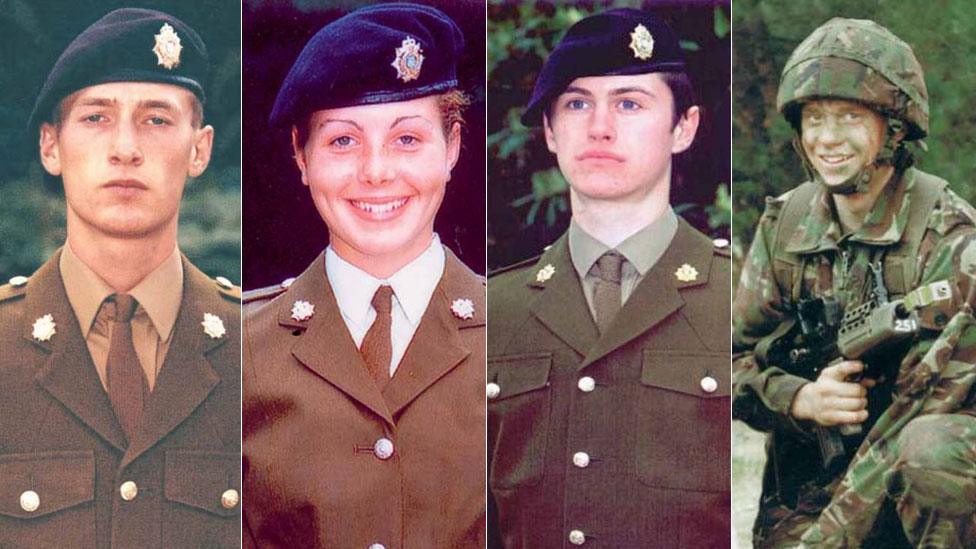Cheryl James: Deepcut soldier's death was suicide, coroner rules
- Published
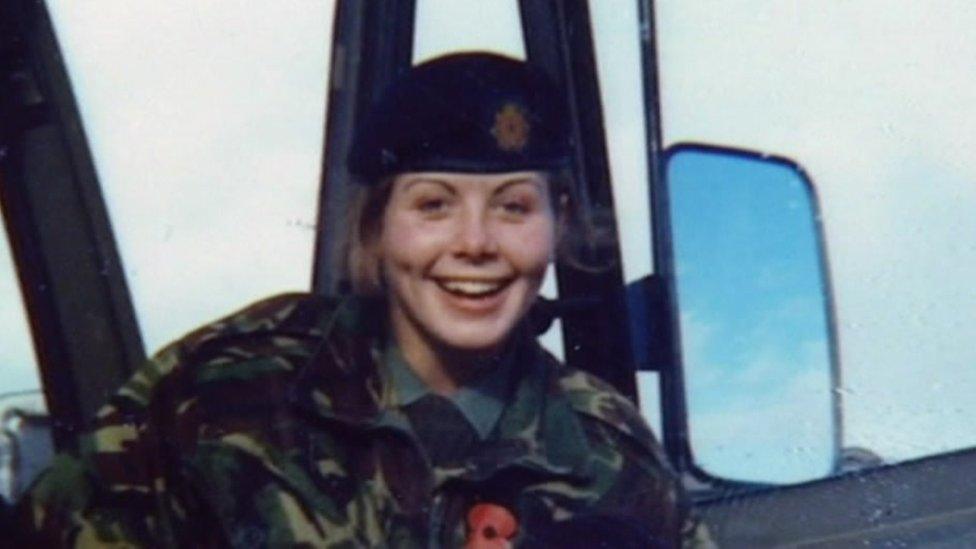
Pte Cheryl James was found dead with a bullet wound to the head
The death of an army recruit from a gunshot wound to the head at Deepcut barracks was suicide, a coroner has ruled.
Pte Cheryl James, 18, was found dead with a bullet wound to the head in 1995. She was one of four recruits to die at the base in seven years.
Coroner Brian Barker QC said the wound was "self-inflicted" and Pte James fired the gun intentionally.
Her father said the family did not believe evidence led to verdict.
Des James said they were "deeply saddened" by the conclusions of the inquest.
"The evidence has revealed serious and profound failures in the care and supervision that ought to have been provided to her, and to all of the other young people who joined the British army with her," he said.
"Deepcut was a toxic and horrible environment for a young woman and we have no doubt that this would have had a terrible impact on those that were required to live there."
Brig John Donnelly said the army was "truly sorry" for the low levels of supervision that provided for the trainees at Deepcut in 1995, and for using trainees for guard duties.
"The army has made many profound changes since 1995, which the coroner has acknowledged, but we do recognise that change is a continuous process," he said.
'Shining life'
Pte James, from north Wales, had been carrying out lone guard duty at the barracks when she was found dead, something the coroner said was contrary to army policy.
The risk of self-harm to trainees during lone armed guard duty had not been adequately recognised, nor had adequate steps been taken to reduce the risk, he added.
Mr Barker said Pte James had a "short, shining life" and had left a legacy of a complete re-evaluation of how the army trains its soldiers.
The coroner said Pte James had a "preoccupation with death" and would sometimes talk to her friends about what guests she would want at her funeral.
He said she was disillusioned with the army and had a troubled adolescence, which included taking an overdose.
'Sexualised atmosphere'
Mr Barker praised Pte James's parents, Des and Doreen, for fighting to discover the truth behind their daughter's death.
"We have explored as best we can what could be unearthed at this late stage within the legal constraints I am bound by," he said.
"Clear answers as to why are just not there to be seen."
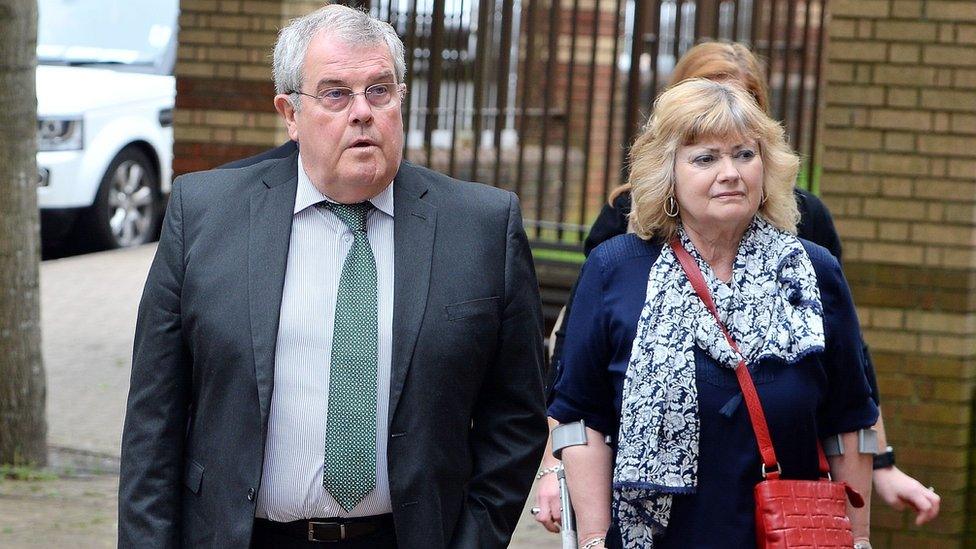
Cheryl James's parents Des and Dorees are at Woking Coroner's Court to her the coroner deliver his findings
Earlier the coroner said there was a "sexualised" atmosphere at the barracks in Surrey.
Mr Barker said there were far too few officers to train and look after the young squaddies, who were left bored and indisciplined.
The malevolent culture at Deepcut Barracks
Follow the latest live updates
"While some intermittent training was provided, there were too few permanent staff to deliver it and put into place a structured regime to occupy and meet a duty of care to those young men and women."
Given the "dearth" of a structured life, he said it was "unsurprising that trainees turned to each other for stimulation".
He also found that there was evidence of inappropriate sexual relationships between commanding officers or instructors and trainees.
Pte James was in relationships with two men at the time of her death - Royal Engineer Simeon Carr-Minns and another soldier Paul Wilkinson.
On the day of her death, Pte Wilkinson went to see Pte James while she was on guard duty to give her an "ultimatum" to choose between them.
The inquest heard Pte James told him she wanted to be with him and he left believing she was fine.
Punishment for trainees
The coroner ruled that he did not consider Pte Wilkinson a suspect in Pte James's death.
The inquest heard that non-commissioned officers (NCOs) meted out guard duty to trainees as punishment, which was also against army rules.
The coroner also attacked the "haphazard" and "insufficient" provision of welfare support at Deepcut and criticised the lack of female officers.
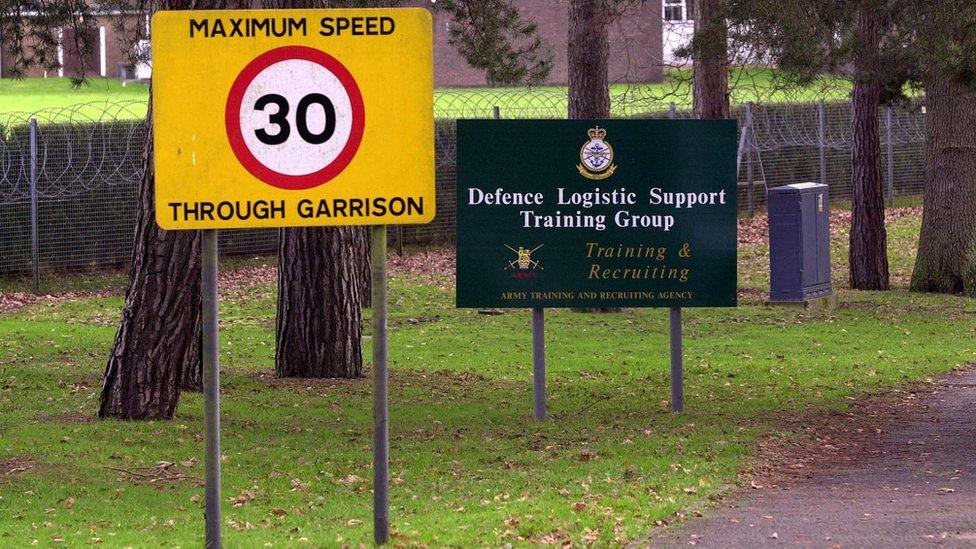
The body of Pte Cheryl James was found near the perimeter fence at Deepcut Barracks
The inquest heard Pte James had mixed feelings about being in the Army and spoke about leaving.
Five months before her death, Pte Sean Benton, from Hastings in Sussex, died from a gunshot wound at the barracks.
Pte James chatted to a friend about this and said it would be "really easy to shoot yourself".
On another occasion, she told an electrician that the only way to get out of the Army would be to "put a gun to your head", but those with her took this as a joke.
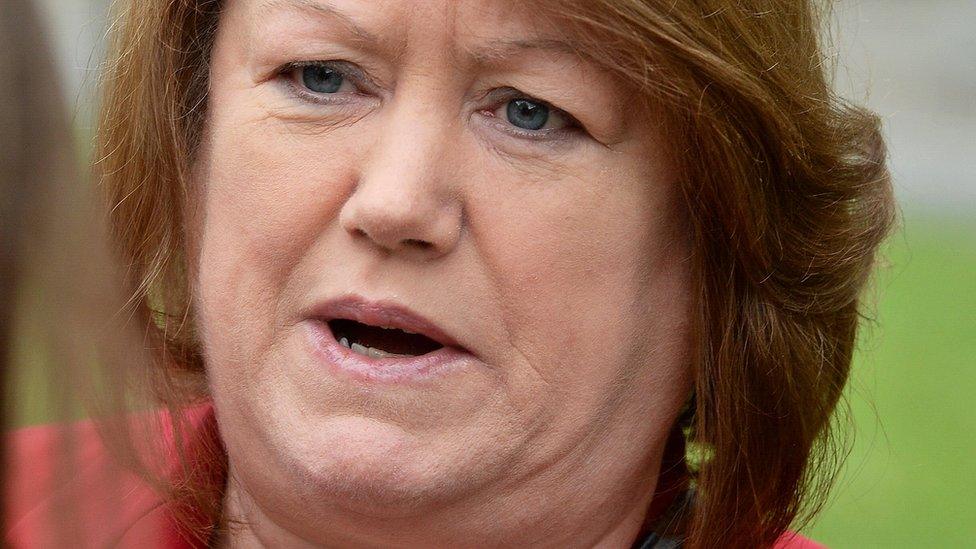
Diane Gray said she would be applying to have her son Geoff's inquest verdict overturned
Mr Barker said it was regrettable there had not been a more thorough investigation at the time of Pte James's death, adding the inquest had been "a long and a difficult exercise".
Paramedics, civilian and military police and investigators were called to the scene, but Mr Barker said that almost from the outset it was assumed that Pte James had died from a self-inflicted injury.
"Although some steps were taken to limit disturbance at the scene, it was not treated as a scene of crime might be. It was not preserved," said Mr Barker.
The inquest also heard that the post-mortem could have been more thorough and that the bullet fragments were disposed of.
The inquest, which is the second into Pte James's death, began in February and heard from more than 100 witnesses.
A first inquest into Pte James's death in December 1995 recorded an open verdict which was quashed by the High Court.
The mother of another soldier who died, Pte Geoff Gray, said she was also applying for the open verdict on her own son's death to be overturned.
Pte Gray, from Seaham, County Durham, was 17 when he was found dead from two gunshot wounds at the base in September 2001.
Det Sup Adam Hibbert of Surrey Police said the force "has long accepted mistakes were made during the initial investigation", and reiterated an apology to the family.
He added: "The evidence has now been thoroughly examined and our thoughts are with the family and friends of Miss James as they reflect on the coroner's verdict."


- Published31 May 2016

- Published22 April 2016
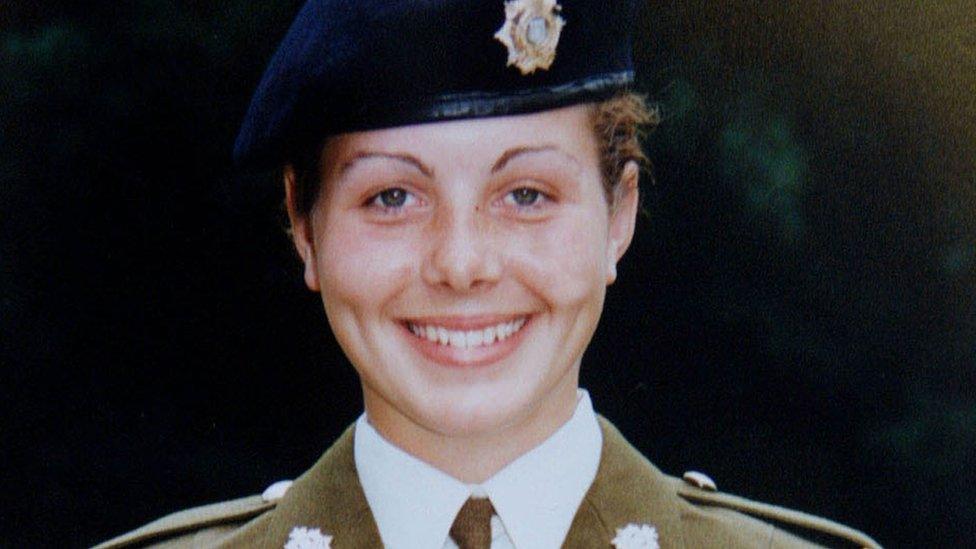
- Published18 April 2016

- Published11 April 2016
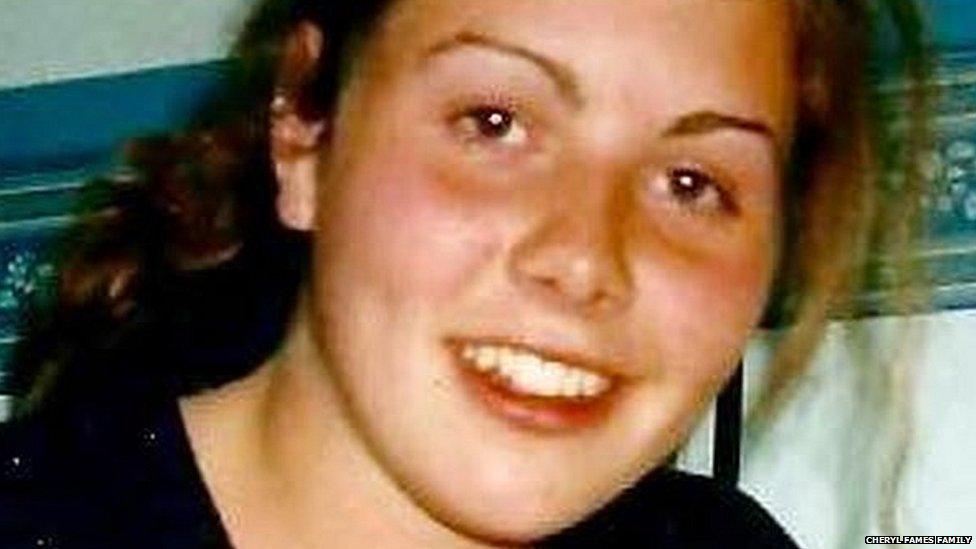
- Published23 March 2016

- Published21 March 2016

- Published18 March 2016

- Published20 June 2019
